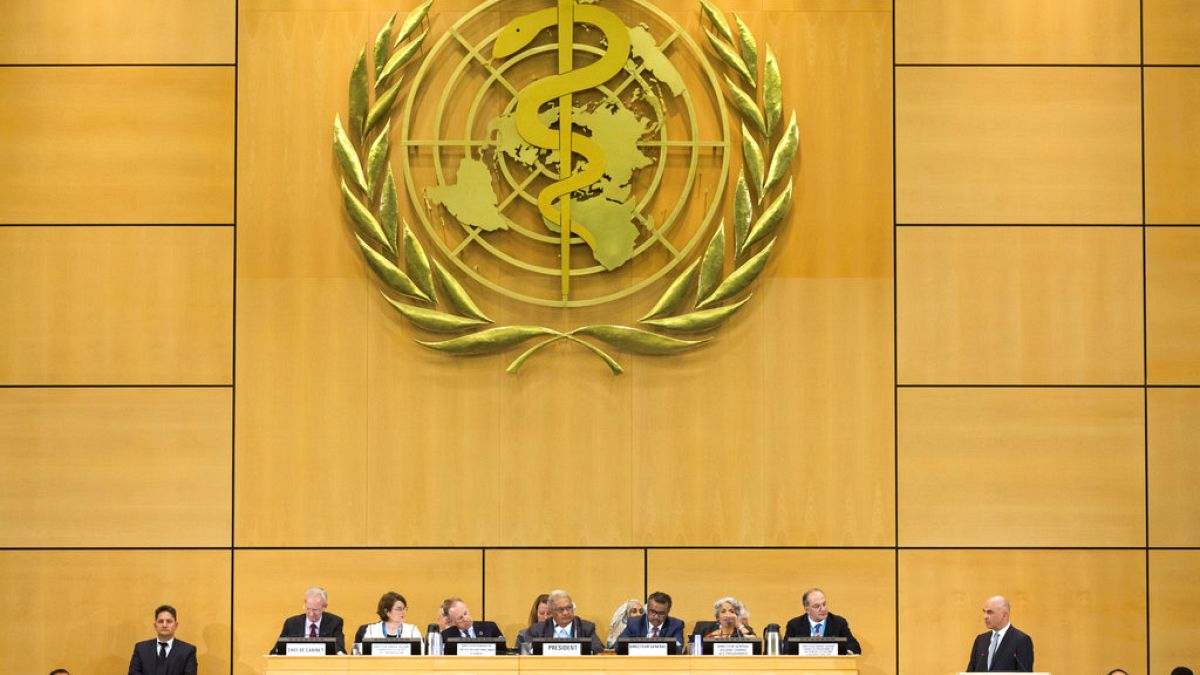With Donald Trump’s plans to cut ties with the World Health Organisation (WHO), the international agency stands to lose not only $1 billion but one of the most influential actors on global health. Will the EU try to fill this gap?
If the United States pulls out of the WHO and the Pandemic Treaty negotiations, the global health landscape loses its main financial contributor, a key source of public health expertise, and an influential voice in shaping global health policies.
How will this shift affect the European Union and what is the way forward in the new race for influence?
Shift of the power balance
The WHO can adapt to the loss of American government support, Director-General Dr. Tedros Adhanom Ghebreyesus said in a December press conference, but warned that the impact would be significant.
As most contributions are tied to specific initiatives, including disease prevention, workforce training, and public health campaigns, the US withdrawal would entail a substantial blow to the organisation’s future projects.
“This decision sends a clear signal to the international community that global health is no longer a priority for the United States”, said Anniek de Ruijter, professor of health law and policy at the University of Amsterdam.
The United States has long been a cornerstone of the organisation’s support, providing $1.284 billion in funding between 2022 and 2023.
This exit will require other powers to fill the gap left by the American government. The EU or China—currently heading the Food and Agriculture Organisation of the United Nations—are likely to be in the race.
When the previous Trump administration cut funding and began to withdraw from WHO, Germany stepped in and significantly increased its contribution to fill the large funding gap left by the US.
At that time, Germany stepped up and substantially increased its WHO contribution to address the major funding gap left by the US.
“However, in the current political and economic climate, it’s less clear whether EU Member States will be able to fill the void this time around,” Elizabeth Kuiper, Associate Director at the European Policy Center told Euronews.
But losing US support is not just a financial problem, it means losing hundreds of staff and access to vital health information – and it will affect both sides.
German Health Minister Karl Lauterbach wrote on X that the withdrawal of the US means the loss of 20% of funding, but also highly qualified specialists from the America.
“Especially children in need, for example in Gaza, are once again the first victims”, he wrote.
The US Centre for Disease Control (CDC) alone currently has more than 1,700 public health experts in over 60 countries.
EU-WHO cooperation
A US withdrawal could also affect plans for future projects co-funded with the European Union, currently one of the WHO’s biggest voluntary donors, and the fifth largest contributor overall.
The EU and the WHO are currently working together on several initiatives, such as a strategy to boost the nursing profession amid high staff shortages presented in September 2024, or an EU-wide survey on the mental health of healthcare professionals.
The European Union has already showed its intention to consolidate its influence on the global stage, enhanced after the COVID-19 pandemic and with the discussions around the EU Global Health Strategy and the Pandemic Treaty.
“This makes it even more urgent for the EU to rethink its current approach to partnerships and its ambition in global health”, Kuiper added.
Another major global health initiative to emerge from the COVID-19 pandemic was the proposal for a Pandemic Accord, from which Donald Trump also wants to withdraw.
Conversations have been ongoing for the past three years, but with little much progress achieved to date. After several delays, the new deadline for an agreement is May 2025.
The US was one of the main blockers of the negotiations, and Republican politicians heavily criticised the idea, considering an agreement would give too much power to the WHO during future public health emergencies.
“The weakening of the WHO could create a power vacuum in global health governance, potentially empowering other actors such as the European Union”, de Ruijter said.
Checkout latest world news below links :
World News || Latest News || U.S. News
The post As the US exits the WHO, can the EU fill the gap in global health? appeared first on WorldNewsEra.

